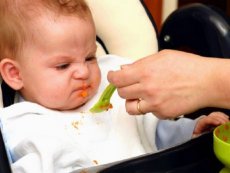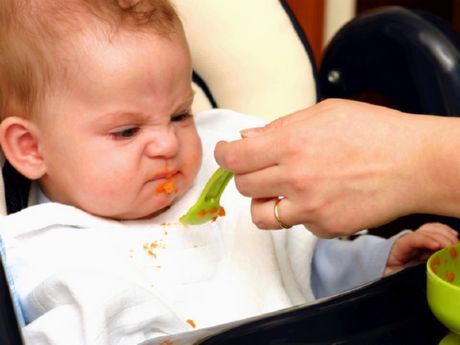Causes of constipation in children
Last reviewed: 23.04.2024

All iLive content is medically reviewed or fact checked to ensure as much factual accuracy as possible.
We have strict sourcing guidelines and only link to reputable media sites, academic research institutions and, whenever possible, medically peer reviewed studies. Note that the numbers in parentheses ([1], [2], etc.) are clickable links to these studies.
If you feel that any of our content is inaccurate, out-of-date, or otherwise questionable, please select it and press Ctrl + Enter.

Features of constipation in a child
Although there are some medical reasons for constipation, such as cystic fibrosis and hypothyroidism, most children have constipation - this is normal. Warning signs that may indicate more serious conditions of the child with constipation - vomiting, constipation, weight loss, weight loss or reduction, fever, bloating or poor appetite.
Constipation is usually defined as weak bowel movements, which become difficult and painful. Infants at the same time experience tension in the rectum, can cry, especially at night. The child may have problems with constipation even when his stool is soft, if they produce an act of defecation not every day, but every two or three days. It is also important to remember that many children with constipation during breastfeeding can defecate extremely rarely - once a week or two.
Why do children have constipation?
One of the things that frustrates parents is the lack of understanding of why their child is constipated. Although many parents understand that too much cow's milk, a diet low in fiber and not enough fluid contributes to constipation, although other children on the same food system can not suffer from constipation.
One of the reasons for constipation in a child may be special dietary needs. For example, a child can drink an average amount of milk, which is not suitable for other children, it can be "too much" for them.
What influences the constipation of the child?
In addition to the child's diet, another major factor affecting constipation is the weakness of the bowel. Often this happens after the child has already become large, and continues to have severe and painful bowel movements that can sometimes occur during defecation.
After this, the child can bind his defecation with pain, so he will try to hold the chair. This creates viscous stools that can not exit the intestine, defecations are very painful. Many parents mistakenly think that children specially sit on a pot for a long time. But this is not true - the child feels very tense, can not empty the rectum, they fidgeting on the pot and make attempts to escape without emptying the intestines.
This is because the child is afraid and tries to avoid painful defecation. Another factor that can contribute to constipation is the negative experience of defecation.
Constipation is also common in children with special needs, such as Down's syndrome, mental retardation, cerebral palsy, and this can be a side effect of many medications. Especially used uncontrolled, without the advice of a doctor.
What causes constipation in children?
In an average child, constipation usually occurs due to eating high-fat foods and low in fiber fiber in combination. This may include too much whole milk, a lot of sour-milk products and too little fruit and vegetables.
Avoid feeding the baby with foods that traditionally can strengthen food in the stomach and intestines, including:
- Bananas
- Most dairy products, such as cheese, yogurt, ice cream, and, as already mentioned, milk. If you have already used restriction of dairy products because of constipation, be sure that you need to find an alternative source of calcium for the child, such as calcium-fortified orange juice.
- Cooked carrots in the diet
- Foods with the highest fat content, such as French fries, and processed foods
- White ground rice
A simple change in a child's diet will help him avoid constipation and may include the following
- Changing the fat content of milk to a lower percentage or using soy milk instead of a cow's milk (at least up to two years), both of these types of milk can be less fatty, and therefore less irritating to the intestines than whole milk
- Limit the milk intake for your child to about 16 ounces (480 ml) per day
- Increase the fluid intake for the baby every day, especially water and apple or pear juice and / or plum juice
- Increasing the amount of fiber and bran in a child's diet, you need to feed it with foods high in fiber, they should make up most of the baby's diet



 [
[